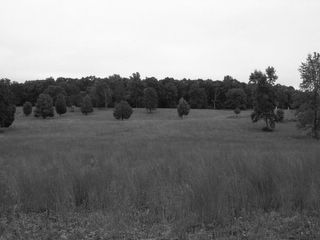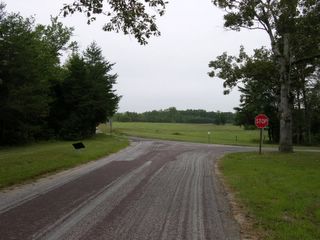Abraham Lincoln rose from his chair on a modest hill in Pennsylvania 142 years ago tomorrow and saved the world.
He was surrounded by a large crowd who had gathered to hear him give a few remarks after Edward Everest was done with his two hour dramatic recounting of the epic struggle that had occurred on that same spot the previous July. The people had to watch their step as they jostled for space among hundreds of freshly dug graves that were lined up in coecentric arcs, forming a giant half moon.
The President was in the midst of what had become an intensely unpopular war. The anti-war riots in New York four months earlier were more violent and deadly than any riots in America before or since. A Republican-majority Congress was starting to grow weary of the growing casualty lists. A Congressional Committee on the Conduct of the War was holding daily hearings and calling officers from the field to testify. There was wide spread disagreement and confusion as to the purpose of the war.
The Democrats, at least the ones who had not joined the armed rebellion against the government, had grown so disenchanted with the conflict that they were backing a fast-growing anti-war movement. Called the Copperheads, they vigorously advocated an immediate withdrawal of troops from the war zone.
Foreign diplomats regarded the President as a rube from the American provinces, an embarrassment with no place among the great leaders of the world. His opponents, and some in his own party, thought he was inarticulate and undereducated, which he was, and did not appreciate "nuance". He was so insecure about giving impromtu speeches that he rarely spoke in public on important issues without a prepared speech.
Casualties, dead and wounded, on each of a dozen days in the previous 18 months, exceeded the total number of casualties to date in both Iraq wars combined. At the place he was to speak, Gettysburg, 53,000 Americans fell in three days. The U.S. population at the time was
one-sixth of today's population. And no end was in sight.
The President would have to say something to prepare the country to fight it out no matter what the cost. He had to explain to the country and the world what they were fighting for, in a way that they could understand it. Otherwise, they would never stand for the hard work and sacrifice that was still in front of them.
In short, Linclon needed to say something to redefine and refocus the purpose of the war, or all would be lost. So he spoke the following 242 words:
"Four score and seven years ago our fathers brought forth on this continent, a new nation, conceived in Liberty, and dedicated to the proposition that all men are created equal.
"Now we are engaged in a great civil war, testing whether that nation, or any nation so conceived and so dedicated, can long endure. We are met on a great battlefield of that war. We have come to dedicate a portion of that field, as a final resting place for those who here gave their lives that that nation might live. It is altogether fitting and proper that we should do this.
"But, in a larger sense, we can not dedicate -- we can not consecrate -- we can not hallow -- this ground. The brave men, living and dead, who struggled here, have consecrated it, far above our poor power to add or detract. The world will little note, nor long remember what we say here, but it can never forget what they did here.
"It is for us the living, rather, to be dedicated here to the unfinished work which they who fought here have thus far so nobly advanced. It is rather for us to be here dedicated to the great task remaining before us -- that from these honored dead we take increased devotion to that cause for which they gave the last full measure of devotion -- that we here highly resolve that these dead shall not have died in vain -- that this nation, under God, shall have a new birth of freedom -- and that government of the people, by the people, for the people, shall not perish from the earth."
After he spoke these words, nobody seriously talked about the European powers intervening on behalf of the South again. This short speech - it's a poem, really - was read by every household in the country, at a time when the American public was far more literate than it is now. The war was now for freedom and self-government, and was no longer simplyt a territorial dispute to "preserve the Union". The speech gave the people the strength and purpose needed to carry on.
When Lincoln got back to town, one of his first acts was to call up General U.S. Grant to take command of all of the armies of the United States. In doing so, he sent a message loud and clear to Southerners, Northerners, and foreigners alike: we are going to win this war regardless of the cost. Grant was going to come east, tear into Lee's army, and grind away until the life drained out of it. This strategy cost another 350,000 lives, but it worked. And it would not have been possible if Lincoln had not made his "few appropriate remarks" on November 19, 1863.





